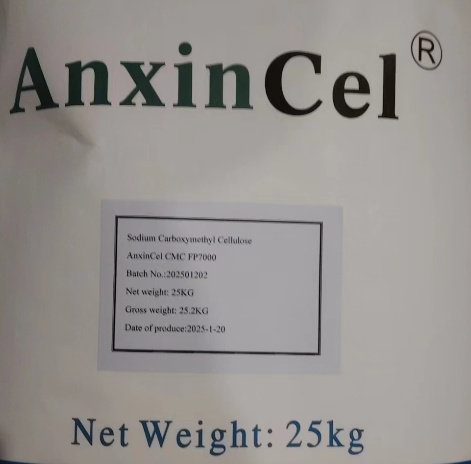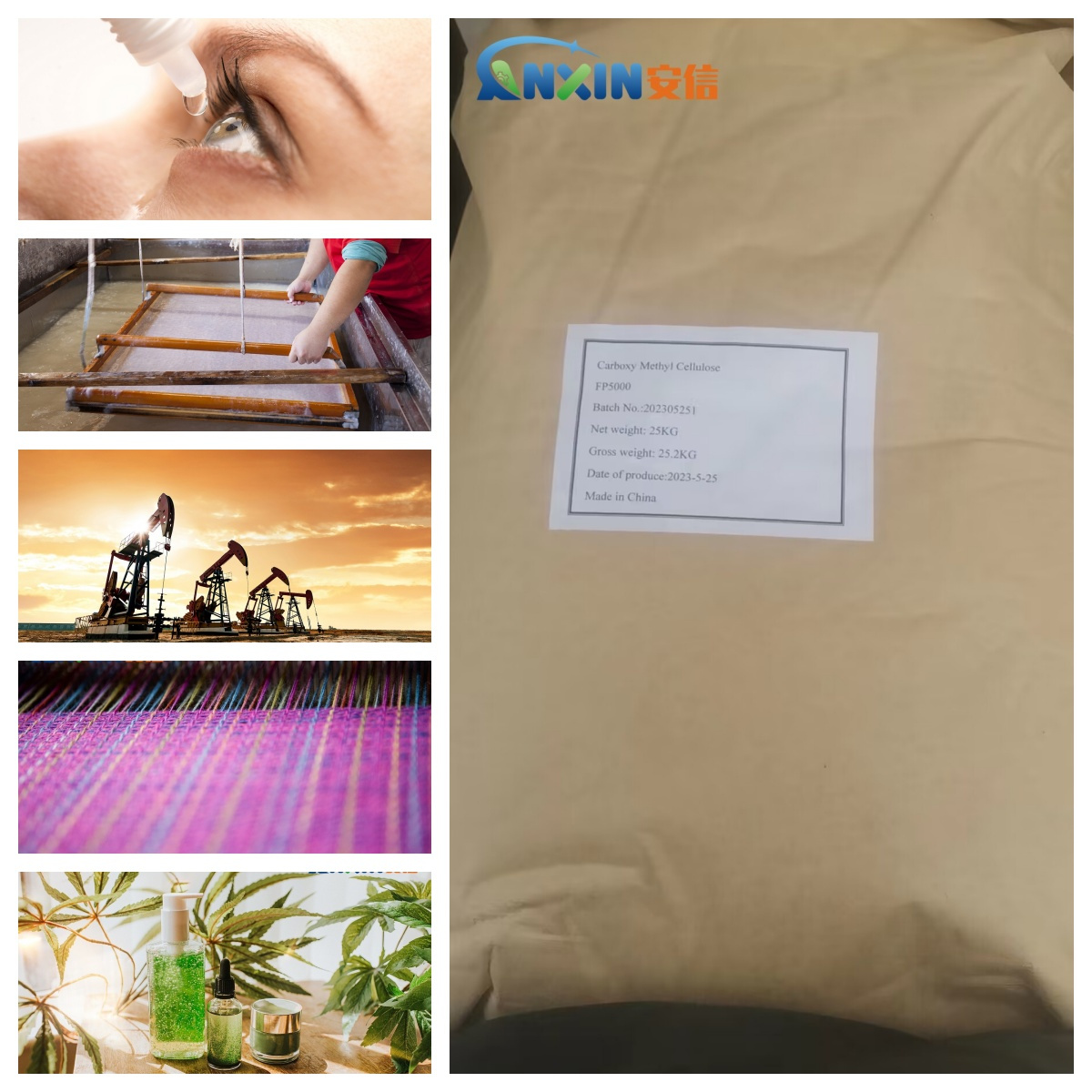Carboxymethyl cellulose (CMC) is a water-soluble polymer compound widely used in many industries. It is an anionic cellulose ether obtained by chemical modification of natural cellulose. Due to its good physical and chemical properties and biocompatibility, CMC is widely used in food, medicine, chemical industry, textile, papermaking, construction, oil extraction and other fields.

1. Performance advantages of CMC
1.1. Excellent thickening performance
CMC can form a high viscosity solution in water, and can significantly increase the viscosity of the system even at low concentrations. It is a very effective thickener and rheology regulator that can stabilize the dispersion system and prevent sedimentation and stratification. It is suitable for emulsions, suspensions and colloid systems.
1.2. Good water solubility
CMC has good hydrophilicity and can be quickly dissolved in cold or hot water to form a transparent and uniform colloidal solution, which is easy to use and process.
1.3. Strong stability
CMC solution has a certain stability to temperature, pH and electrolyte, and can maintain long-term storage without deterioration. It is an ideal stabilizer and emulsifier.
1.4. Non-toxic, degradable and biocompatible
CMC is derived from natural plant cellulose. After modification, it remains non-toxic, non-irritating and has good biodegradability. It meets the requirements of green environmental protection and is particularly suitable for food and medicine.
1.5. Good film-forming property
CMC can form a dense and uniform film on the surface of an object, which helps to maintain moisture, prevent oxidation and pollution, and is widely used in drug coating, food coating and other occasions.
2. Main application areas of CMC
2.1. Food industry
CMC is widely used in yogurt, jam, ice cream, jelly, beverages, baked goods and other foods as a thickener, stabilizer, emulsifier and film-forming agent. It can improve taste, stabilize structure and extend shelf life. For example, using CMC in ice cream can prevent ice crystal formation and make it taste smoother.
2.2. Pharmaceutical Industry
In the pharmaceutical field, CMC is widely used in pharmaceutical production as a basic component of tablet adhesives, pharmaceutical coating materials, sustained-release carriers and artificial tears. Its good biocompatibility and adhesion make it an ideal pharmaceutical excipient.
2.3. Daily Chemical Products
In daily chemical products such as toothpaste, shampoo, and skin care products, CMC can be used as a thickener and suspension stabilizer to help the product maintain a good texture and stability. For example, adding CMC to toothpaste can prevent solid particles from settling and make the paste uniform and delicate.
2.4. Textile and Printing and Dyeing
In the textile industry, CMC is mainly used as a sizing agent and printing and dyeing paste. It has good film-forming and sizing properties and can improve the tensile strength and smoothness of fabrics.
2.5. Papermaking Industry
CMC can improve the dry and wet strength and surface sizing of paper, improve the printing suitability of paper, and improve paper quality.
2.6. Construction and oil industry
In the construction industry, CMC is used for water retention and thickening in cement and mortar; in oil drilling fluid, CMC is used as a rheology modifier to help carry cuttings, cool the drill bit, and stabilize the well wall.

3. The significance of using CMC
3.1. Improving product quality and performance
By using CMC, the physical properties of the product, such as viscosity, stability, moisture retention, and film-forming properties, can be significantly improved, thereby improving the quality of the end product.
3.2. Saving resources and reducing costs
As a versatile additive, CMC has a small amount and significant effect. It can replace some expensive raw materials, reduce resource waste, and reduce production costs.
3.3. Environmental friendliness and sustainable development
CMC is naturally derived, non-toxic and degradable, and will not pollute the environment. It meets the requirements of modern industry for sustainable, green and environmentally friendly production.
3.4. Enhance the adjustability and flexibility of the formula
Due to its good compatibility, CMC can be used with a variety of other additives to make the formula more flexible and diverse to meet different process requirements and usage conditions.
With its unique chemical structure and physical and chemical properties, carboxymethyl cellulose (CMC) has become an indispensable functional polymer material in many industries. It can not only improve product performance and quality, but also take into account environmental protection and economic benefits. It is an ideal additive choice in modern industry. With the continuous development of science and technology, the application prospects of CMC in emerging fields will also be broader.
Post time: May-22-2025